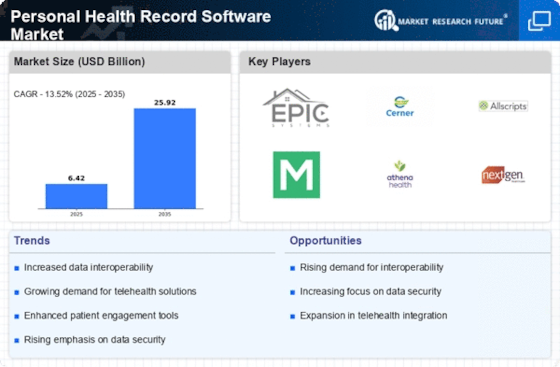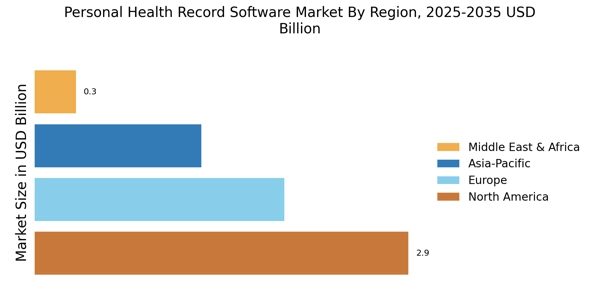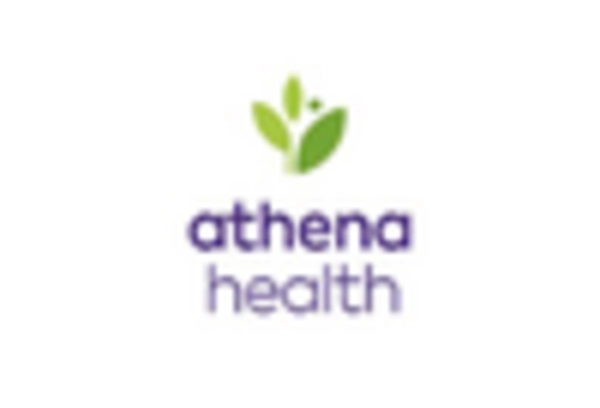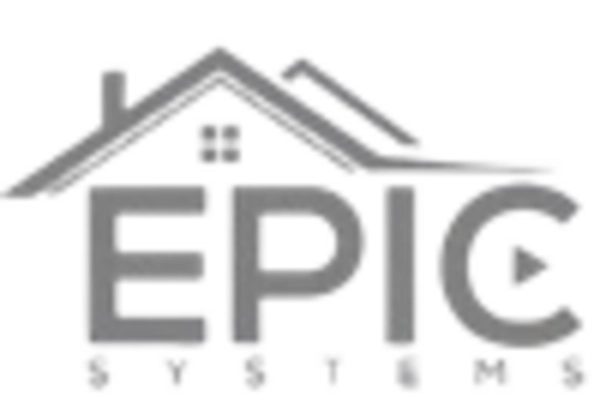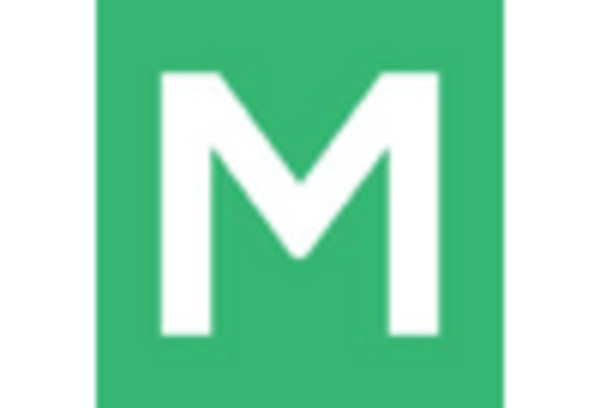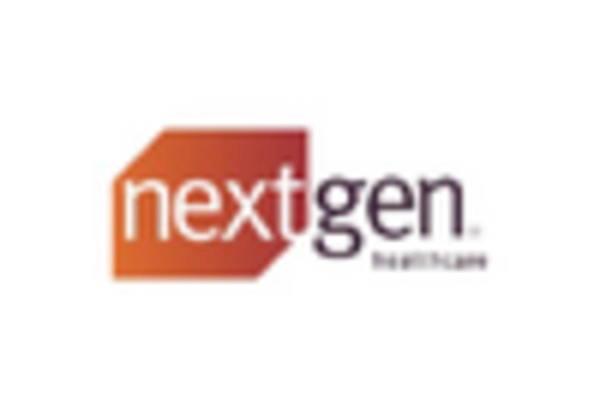Regulatory Support and Incentives
Regulatory frameworks are increasingly supporting the adoption of personal health record software, which is a crucial driver in the Personal Health Record Software Market. Governments and health organizations are implementing policies that encourage the use of electronic health records and personal health records. For instance, initiatives that provide financial incentives for healthcare providers to adopt such technologies are becoming more prevalent. Data suggests that regions with strong regulatory support see a 30% higher adoption rate of personal health record systems. This regulatory backing not only fosters innovation but also ensures that personal health record software aligns with national health objectives, thereby enhancing its market potential.
Increased Awareness of Data Privacy
As concerns regarding data privacy and security continue to rise, the Personal Health Record Software Market is witnessing a heightened focus on secure health information management. Patients are becoming more aware of their rights regarding personal data, prompting a demand for software that prioritizes data protection. This awareness is reflected in surveys indicating that over 80% of patients are concerned about the security of their health information. Consequently, personal health record software that incorporates robust security features, such as encryption and user authentication, is likely to gain traction. This emphasis on data privacy not only builds trust among users but also drives the overall growth of the market.
Integration with Telehealth Services
The integration of personal health record software with telehealth services is emerging as a significant driver in the Personal Health Record Software Market. As telehealth becomes more mainstream, the need for seamless access to personal health records during virtual consultations is increasingly recognized. Data indicates that telehealth usage has surged, with a 50% increase in virtual visits reported in recent years. This trend necessitates the development of personal health record software that can easily interface with telehealth platforms, allowing healthcare providers to access patient information in real-time. Such integration not only enhances the efficiency of care delivery but also improves patient outcomes, thereby propelling the growth of the personal health record software market.
Growing Demand for Patient-Centric Care
The Personal Health Record Software Market is experiencing a notable shift towards patient-centric care. Patients increasingly seek control over their health information, leading to a surge in demand for software that allows easy access and management of personal health records. This trend is supported by data indicating that approximately 70% of patients prefer to manage their health information digitally. As healthcare providers recognize the importance of engaging patients in their care, the adoption of personal health record software is likely to rise. This shift not only enhances patient satisfaction but also improves health outcomes, as patients who actively manage their health are more likely to adhere to treatment plans. Consequently, the emphasis on patient-centric care is a significant driver in the Personal Health Record Software Market.
Technological Advancements in Health IT
The rapid advancement of health information technology is a pivotal driver in the Personal Health Record Software Market. Innovations such as artificial intelligence, machine learning, and blockchain are transforming how personal health records are managed and secured. For example, AI-driven analytics can provide personalized health insights, while blockchain technology ensures data integrity and security. The market for health IT is projected to grow at a compound annual growth rate of 15%, indicating a robust demand for advanced personal health record solutions. As these technologies become more integrated into personal health record software, they enhance functionality and user experience, thereby attracting more users and healthcare providers.


